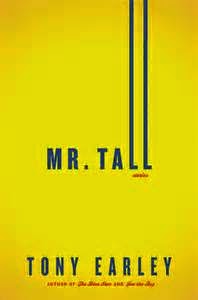This weekend, I finally got to begin (and finish) Tony Earley's newest book, billed as a novella and short stories. The stories, most of them realistic and set in a fictional area lying somewhere in North Carolina near Earley's home Rutherfordton (or as the locals call it, Rufft'n). Some of the story lines and character lists overlap, in different times. In the title story, a young bride, newly pregnant, left alone in her remote home as her husband works away during the week and returns home each weekend, becomes an older woman in a later story "Just Married" that supplies denouement to the her earlier years.
The story "Cryptozoologist" I had heard a few years ago when Earley read here in Hickory, when he pointed out that a story needed "three things" to come to live. Two of his three, as I recall, were Eric Robert Rudolph (called Wayne Lee Cowan in the story) and a skunk ape, the Appalachian version of Bigfoot.
However, the last story in the collection"Jack and the Mad Dog" had me torn between rushing to finish (so I could read it again, more careful, more analytical) or calling other people, insisting they read it immediately and then call me back, or maybe writing a fan letter to Earley. The protagonist in the story Jack (yes, that Jack, he reminds readers, the mythical giantkiller and climber of bean trees). In this story, Earley has woven folktales and clever, subtle literary analysis. Jack encounters all the cast of all his stories, as well as (spoiler alert?) Tom Dooley, playing a cameo role, Jack's competition as central character in their area of North Carolina.
Sometimes when I read a novel or short story, I catch myself thinking, "I could do this. I could have written this story." Not so with this Jack tale. The clever use of language, or literary elements, humor, irony--it's all the demonstration of more art than craft. I laughed out loud, but usually at some clever twist or bit of wordplay Earley had worked into the story. Juggling, weaving--any metaphor falls short to describe the magic of this particular story.
I'm afraid that I, like Jack, may have to keep reading and re-reading, at least until I find someone else ready to talk about the story with me. I may have to pay Mr. Earley a visit.











